Sept 2008
Sept 2008 sadminAGRICULTURE SUCCESS HELPS HER TO HELP THE POOR
AGRICULTURE SUCCESS HELPS HER TO HELP THE POOR sadmin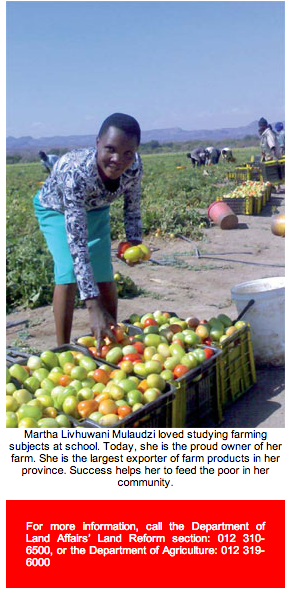
AVOID THE DEBT TRAP ESCAPE DEBT ... SPEND MONEY WISELY
AVOID THE DEBT TRAP ESCAPE DEBT ... SPEND MONEY WISELY sadmin

AVOID THE DEBT TRAP GOING GREEN WITH A FARM IN THE CITY
AVOID THE DEBT TRAP GOING GREEN WITH A FARM IN THE CITY sadmin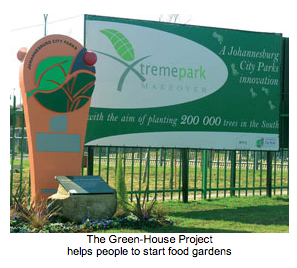
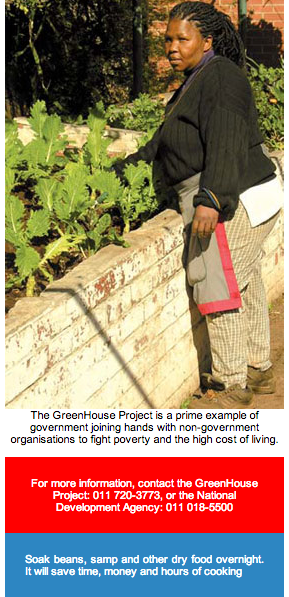
AVOID THE DEBT TRAP GROWING FOOD FOR THE FUTURE
AVOID THE DEBT TRAP GROWING FOOD FOR THE FUTURE sadmin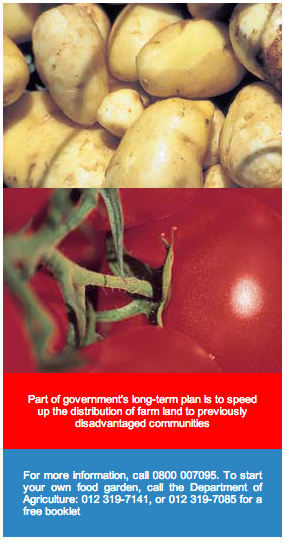
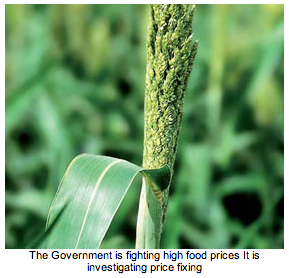
AVOID THE DEBT TRAP PAY OFF DEBT AND START SAVING
AVOID THE DEBT TRAP PAY OFF DEBT AND START SAVING sadmin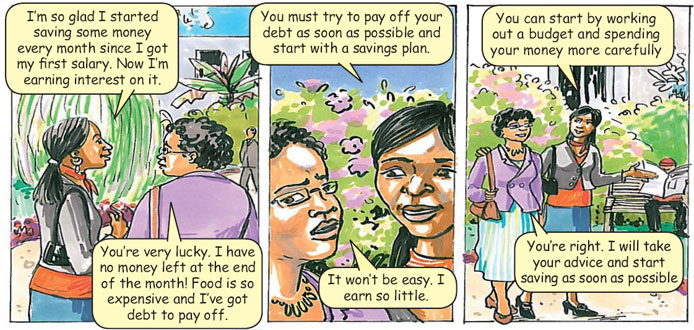
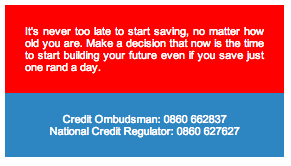
AVOID THE DEBT TRAP STOKVEL - MAKING UBUNTU WORK
AVOID THE DEBT TRAP STOKVEL - MAKING UBUNTU WORK sadmin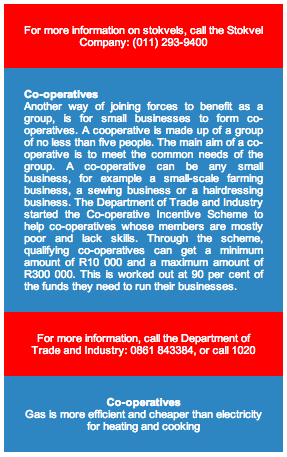
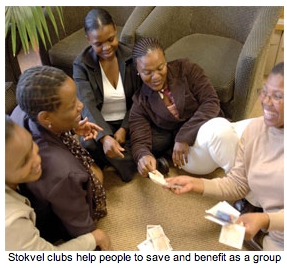
Advice: Exercise to stay healthy and productive
Advice: Exercise to stay healthy and productive sadmin- prevent high blood pressure, hip fractures and lower back pain
- promote psychological wellbeing by reducing stress, anxiety and depression,
- control weight
- build and maintain healthy bones, muscles, joints and stamina.
More Productive
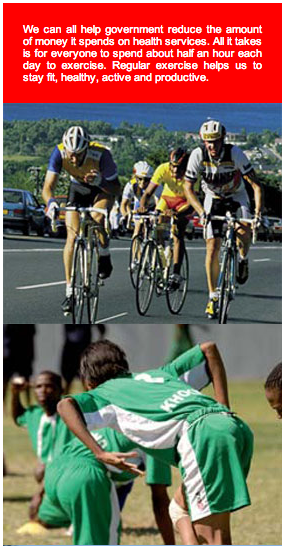
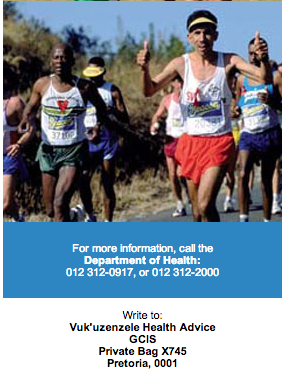
FIGHTING POVERTY YOU CAN GET SOCIAL GRANTS WITHOUT OFFICIAL DOCUMENTS
FIGHTING POVERTY YOU CAN GET SOCIAL GRANTS WITHOUT OFFICIAL DOCUMENTS sadmin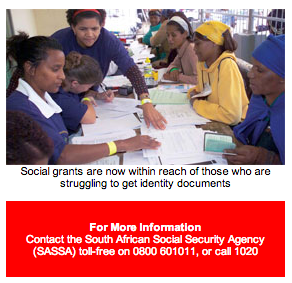
FUN PAGE TREES - NATURE'S MEDICINE CHEST...
FUN PAGE TREES - NATURE'S MEDICINE CHEST... sadmin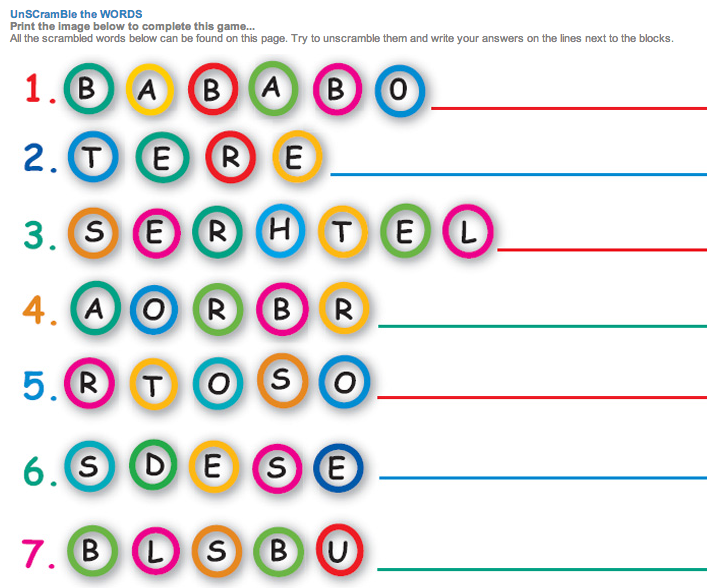
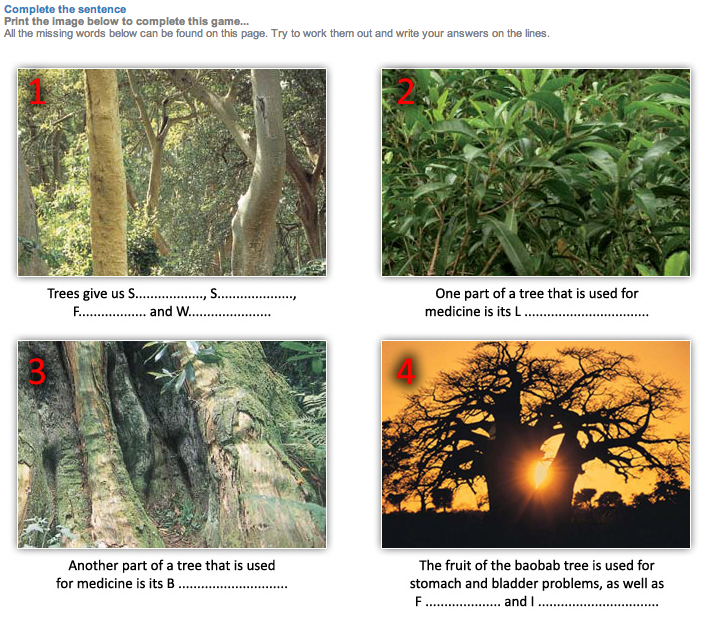
KE NAKO. CELEBRATE AFRICA'S HUMANITY ACCOMMODATING SMALLER BUSINESSES
KE NAKO. CELEBRATE AFRICA'S HUMANITY ACCOMMODATING SMALLER BUSINESSES sadminThe world soccer controlling body, FIFA, will give its full support to smaller businesses like bed and breakfasts, lodges and guesthouses to accommodate visitors in 2010.
But to get FIFA's support, such places must be registered and must meet FIFA's standards.
The Department of Environmental Affairs and Tourism, together with MATCH, is responsible for making sure that the 55 000 rooms needed for soccer officials, teams, VIPs, media and visitors are of a high standard.
MATCH is an international company hired by FIFA and is responsible for accommodation, information technology and issuing of tickets for the 2010 World Cup.
Grading Council
The Tourism Grading Council is a body started by government to make sure that places offering accommodation meet certain standards. They look at what places offer and give them a star rating in line with set conditions.
Places will only be graded if they:
- ensure safety and security of clients and staff;
- have insurance, which protect the public;
- have a health and safety certificate;
- have fire and building regulations;
- are registered as a business with the provincial authority;
- do not discriminate on the basis of race, gender or citizenship; and
- have smoking regulations.
MATCH
The role of MATCH in the grading process is to:
- ensure that accommodation prices are fair and reasonable;
- ensure easy access to accommodation;
- promote the image of the FIFA World Cup;
- promote the image of South Africa as a host country; and
- identify accommodation which meet FIFA's needs.
Enterprise Programme
So far, the Department of Environmental Affairs and Tourism, through the Grading Council and MATCH, have graded about 30 000 rooms for 2010.
To speed up the grading of small, medium and micro businesses, government has made R200 million available.
Government also started the Tourism Enterprise Programme to help small businesses to meet the necessary grading standards by helping them to improve their businesses.
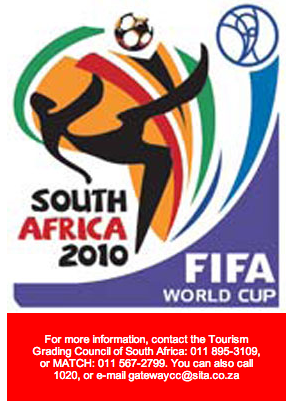
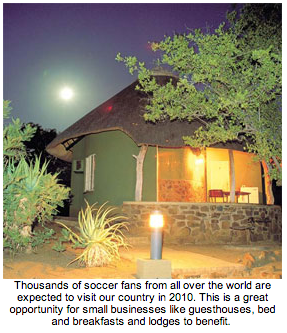
- Muzi Mkhwanazi
KE NAKO. CELEBRATE AFRICA'S HUMANITY ENSURING A SAFE WORLD CUP
KE NAKO. CELEBRATE AFRICA'S HUMANITY ENSURING A SAFE WORLD CUP sadminPlans to ensure that soccer fans will have a safe visit to the country during the 2009 FIFA Confederations Cup and the 2010 FIFA World Cup are almost finalised. The safety and security plan, which is aimed at dealing with specific crimes will be rolled out in different stages. The first part is crime prevention and combating. The police will deploy 41 000 police personnel. In addition, they will have support from the South African National Defence Force for specific tasks. The second stage includes intelligence. A 2010 Intelligence Co-ordinating Committee between police and military intelligence has been set up to look at ways to fight terrorism, hooliganism and unruly crowds. The third phase involves border control. It has been divided into South African ports of entry and border lines. Regarding border lines, the South African Police started operational committees with the SADC countries. They also set up a police organisation called Southern African Region of Police Chiefs.
- BuaNews
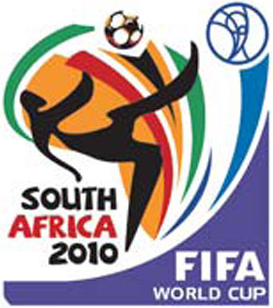
KEEPING IT BRIEF
KEEPING IT BRIEF sadminEASTERN CAPE
Almost 1 000 families who lived in informal settlements in the Nelson Mandela Bay Municipality got their own homes in August. They are beneficiaries of the Zanemvula Housing Project. Through this project, about 15 000 houses will give shelter to more than 90 000 people at a cost of more than R1 billion. It will wipe away almost 20 per cent of the municipality's 100 000 housing backlog.
- BuaNews
NORTHERN CAPE
Construction has started on the Big Hole Conference Centre in Kimberley. It is part of the Big Hole Development Project and will give jobs to about 350 people, mostly youth from the local community. It will also bring more business and tourism to the area. The centre is part of the provincial government's commitment to improve opportunities in Kimberley. The Big Hole is the largest man-made hole in the world and a major tourist attraction in the region.
- BuaNews
MPUMALANGA
The province will host this year's Special Olympics for intellectually disabled athletes, in Elandsdoorn near Groblersdal on 24 September. Athletes from across the country will take part in different Olympic sports. These include soccer, netball, table tennis and volleyball. The event is funded by government, individuals, corporations, foundations, and grants.
- BuaNews
FREE STATE
Upgrading of the Free State Stadium for both the 2009 Confederations Cup, and the 2010 FIFA World Cup is nearly completed. The project created more than 400 construction jobs. A total of R4,5 million has been paid out to construction workers since the work started on 1 September 2007. The completion date was first set for 30 August this year, but has been extended to the end of September.
- BuaNews
LIMPOPO
An Unemployment Insurance Fund (UIF) Processing Centre was opened in Thohoyandou recently. Employers and workers in Limpopo are now able to easily register with the fund and process their claims without having to travel long distances. The Department of Labour is starting similar centres throughout the country. It aims to improve service delivery and educate the public about the services offered by the UIF, as well as encouraging beneficiaries to make use of available services.
- BuaNews
KWAZULU-NATAL
The Department of Public Works has set aside R34 million for rebuilding mud schools in KwaZulu-Natal. This is part of R150 million set aside by government to rebuild 8 000 mud schools throughout the country. The main aim of the programme is to improve unsuitable school structures and to fight poverty through job creation, skills development and local economic development.
- BuaNews
For more information about news items featured on this page, call 1020
LETTERS TO THE EDITOR GIVE US A PIECE OF YOUR MIND
LETTERS TO THE EDITOR GIVE US A PIECE OF YOUR MIND sadmin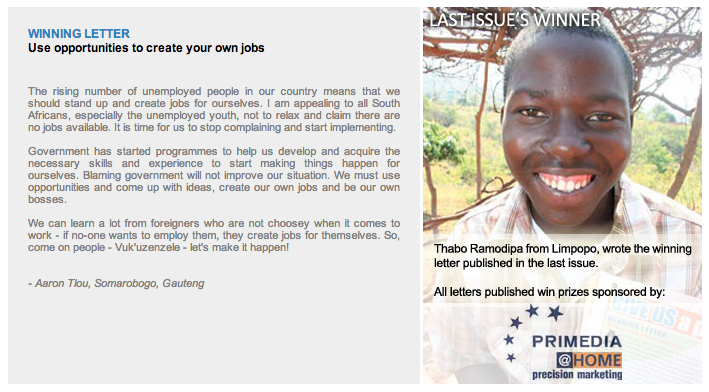

NATIONAL DISABILITY SUMMIT JUSTICE AND DIGNITY FOR ALL
NATIONAL DISABILITY SUMMIT JUSTICE AND DIGNITY FOR ALL sadmin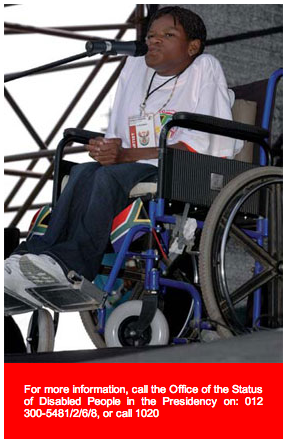
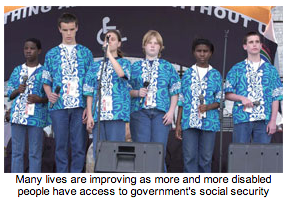
PHOTO STORY NO SHORTCUTS ON HIS JOURNEY TO THE TOP
PHOTO STORY NO SHORTCUTS ON HIS JOURNEY TO THE TOP sadmin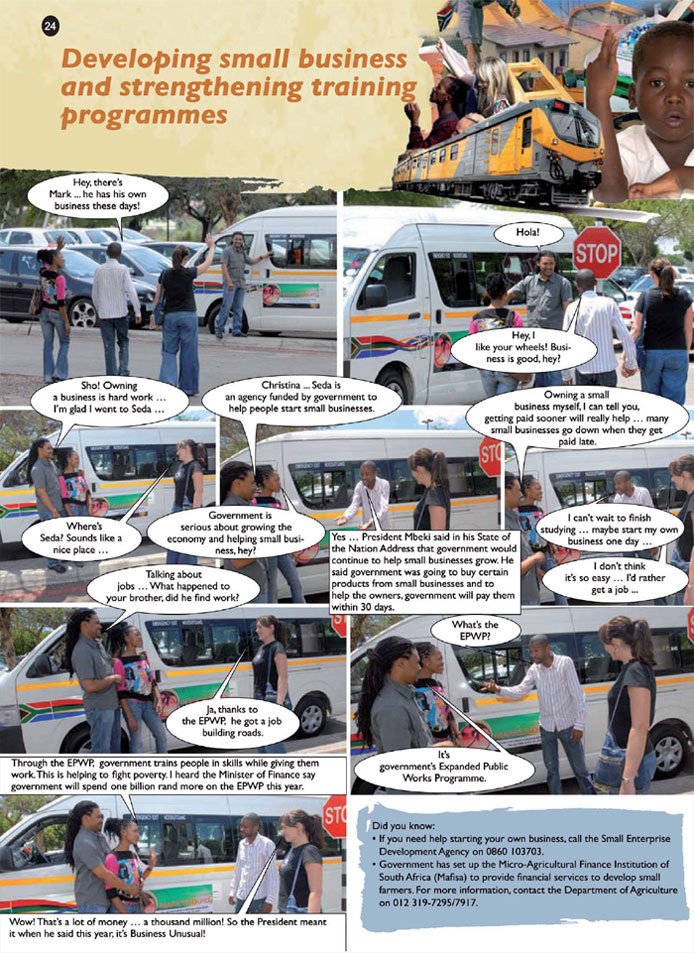
ROLE MODEL NO SHORTCUTS ON HIS JOURNEY TO THE TOP
ROLE MODEL NO SHORTCUTS ON HIS JOURNEY TO THE TOP sadmin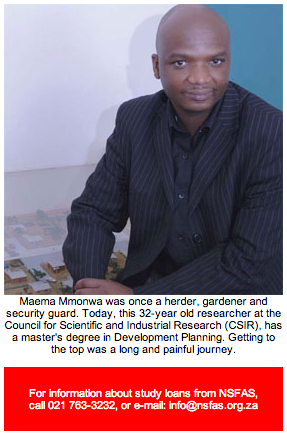
VOTER EDUCATION GET READY TO VOTE
VOTER EDUCATION GET READY TO VOTE sadmin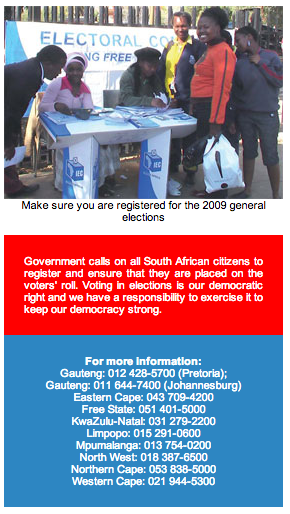
WORLD AFFAIRS G8 - THE RICH GIVING BACK TO THE POOR
WORLD AFFAIRS G8 - THE RICH GIVING BACK TO THE POOR sadminIn the early 1970s, there was a serious shortage of oil in the world. This caused economic hardship. It was during this time that it was decided to get the world's most powerful economies together to find solutions to the world's problems.
In 1975, seven rich countries came together to form what was then known as the world's group of seven industrialised nations. They became know as the G7 countries. Their aim was to work together to create a better world.
These countries were the United States of America (USA), France, Germany, Italy, Japan, the United Kingdom (UK), and Canada.
In 1994, Russia joined them and the name changed to G8.
G8 Summit
Every year, the heads of government of these countries get together for a three-day G8 leaders' summit. This year's meeting was held in the resort area of Hokkaido near Tokyo in Japan.
The aim of the summit is to discuss world problems like high food prices, aid to developing countries, terrorism, high oil prices and changes in the environment.
At the end of each summit, the G8 put out a final statement in which they explain how they plan to solve the problems faced by both the developed and developing nations.
Group of 5
To make the summits more representative, a group of developing nations is also invited to attend. These countries are South Africa, India, Brazil, China and Mexico. They are known as the Group of Five (G5).
The participation of the five developing nations ensures that they have common goals when solutions to world problems are discussed.
South Africa's participation in the G8 summits has been a positive step for the whole African region. It gives a voice to the region and is in line with the G8's aim of creating a better world.
African development
At the 2005 summit in Scotland, the G8 countries promised that by 2010 they would give 50 billion American dollars yearly for African development. This includes the fight against diseases like HIV and Aids, and malaria.
Climate change
During this year's G8 meeting in Japan, they talked mainly about climate change and the food crisis. The food crisis, which is caused partly by oil prices and climate change, affects the whole world.
Almost 40 per cent of the harmful gases in the world are produced by the G8 countries. These harmful gases have a negative effect on the world's climate. Climate change is causing drought and floods, which in turn cause food crops to fail. Reducing the harmful gases depends on the decisions and actions of the G8 countries.
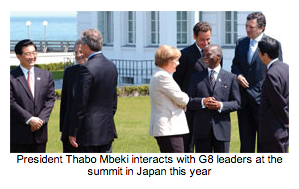
- Mbulelo Baloyi
XENOPHOBIA UNDERSTANDING REFUGEES' RIGHTS
XENOPHOBIA UNDERSTANDING REFUGEES' RIGHTS sadmin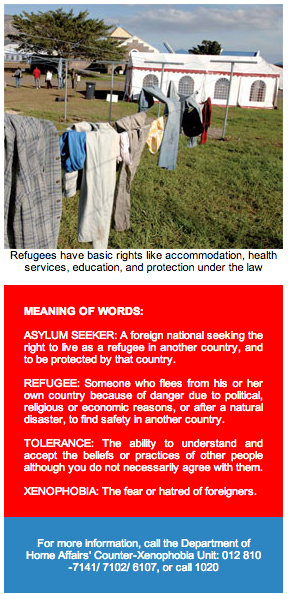
YOUTH 'I'M FINE WITHOUT DRUGS'
YOUTH 'I'M FINE WITHOUT DRUGS' sadminThe Ke-Moja anti-drug ambassadors were announced in July. This special event was organised by government in partnership with the National Youth Commission and the United Nations Office on Drugs and Crime.
Ke-Moja, "I'm Fine without Drugs", is an anti-drug partnership campaign aimed at educating communities on the dangers of drug abuse and getting them to take action against it.
Role models
The ambassadors for the Ke-Moja anti-drug campaign are sports and entertainment personalities who act as role models for the youth. They include people like football star Teko Modise, South African marathon champion Mbualeni Mulaudzi, television actors Thabiso Mokheti and Sipho Ngwenya, and radio personality DJ Fresh.
Mokheti, who plays the role of Samuel in the television soapie Generations, said he wanted to tell young people they did not need alcohol or drugs to have fun. A former drug user himself, he said he wanted to encourage those already abusing drugs to seek help.
World report
The ambassadors were announced just a few hours after the release of the World Drug Report by the United Nations Office on Drugs and Crime. It shows that 26 million people world-wide are addicted on drugs.
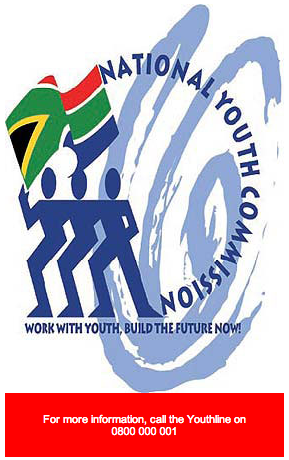
YOUTH MATRICS WILL GET NEW NATIONAL SENIOR CERTIFICATES
YOUTH MATRICS WILL GET NEW NATIONAL SENIOR CERTIFICATES sadmin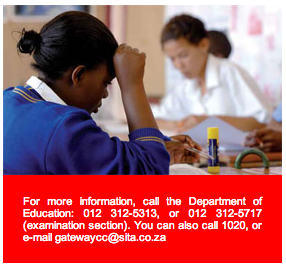
Youth enterprise mentorship project mentoring: The first steps to success
Youth enterprise mentorship project mentoring: The first steps to success sadminJust like a small child who is learning to walk needs help to take its first steps, a young business needs help to get started.
Many small businesses fail even though young entrepreneurs have the knowledge and skills to run their own businesses. A study by the Umsobomvu Youth Fund has shown that this is because young people lack business experience and mentors.
Important role
A mentor is someone with a lot of experience and skills who helps a younger inexperienced person. In a new business the mentor plays an important role in getting the business started. The young entrepreneur learns from the mentor how to run the business successfully.
Skills
The Youth Enterprise Mentorship Project was started to get mentors for young business people. The aim is to help them develop their business ideas, knowledge and skills. If necessary, the mentors will give advice even after the businesses are up and running.
Apply
Young business people who need a mentor have to apply to Umsobomvu.
Depending on the kind of help they need, Umsobomvu will then match them with a professional mentor. They will look at things like the type of business, the problems they have and where the business is located.
The mentors on their database include experienced business people, business consultants, senior and middle managers and postgraduate students with business experience.
Services
The mentors provide services like one-on-one mentoring, general business mentoring, specialist mentoring, group mentoring and peer mentoring.
Services are matched with specific needs. For example, for a specialist industry like a restaurant, a mentor who has a lot of experience in this field will be appointed.
The mentorship programme lasts for a period of two years.
Voucher
Apart from the mentorship project, Umsobomvu also started the Business Development Services Voucher programme for young entrepreneurs.
To qualify for this programme, males must be between 18 and 35 years old. Women of any age can apply.
The programme gives help in the form of money vouchers. The vouchers are used to pay professional service providers for support services given to the businesses. These include services like accounting, bookkeeping, marketing, branding and design of business forms, and business and financial administration.
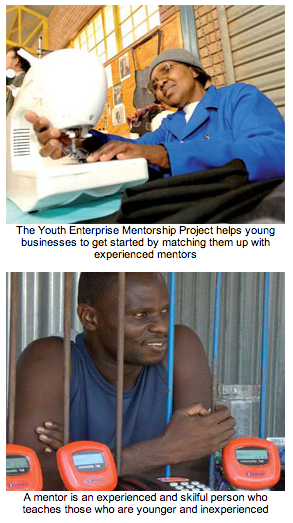

- Muzi Mkhwanazi